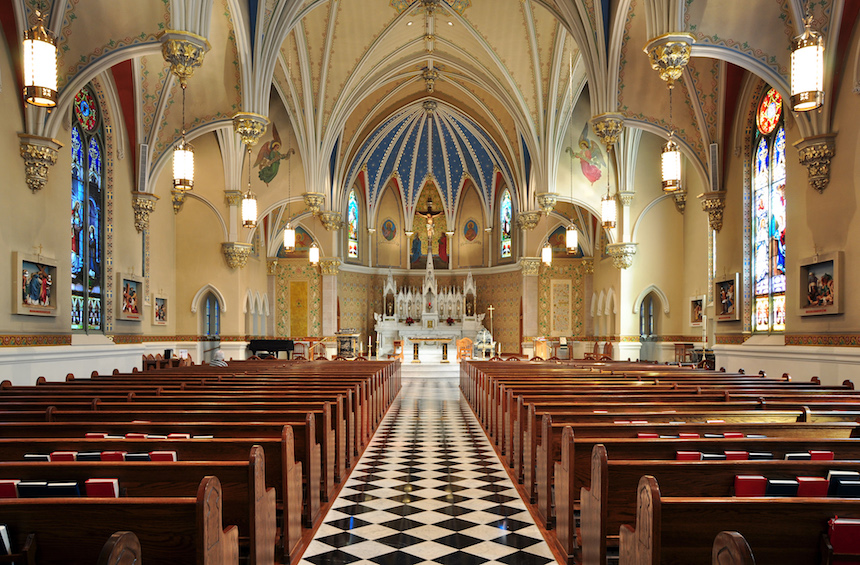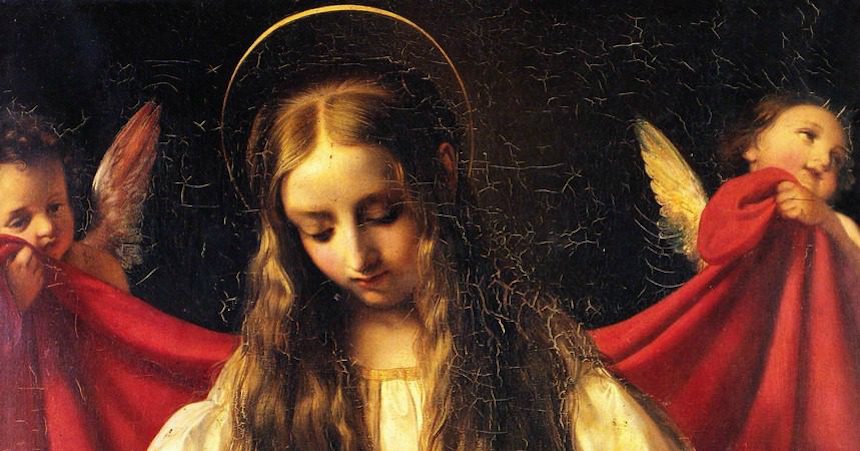Attending a Catholic Mass for the first time?


This weekend, a friend of mine will be attending his first Catholic Mass. It got me thinking: What is the best way to prepare someone who will be attending Mass for the first time? What advice might be helpful?
Obviously you’d prepare someone to attend a Catholic Liturgy differently, depending upon the visitor’s religious background. If that person were Eastern Orthodox, he would already have a very good theological grounding to understand the Mass. Depending upon the particular denomination, a Protestant might also understand much, although that’s not guaranteed, particularly if she were from a non-Liturgical tradition. Those of different religions entirely and those with no real exposure to spirituality would likely have a harder time.
As a result of all this, it’s rather hard to write a general, suitable-for-all article for someone going to Mass for the first time. Fortunately, I’ve never let either a difficult challenge or my lack of ability hold me back from trying anything, therefore I’m going to give it a go! So, without further ado, here are my top ten tips for those of you attending Mass for the first time…
1. Turn up in good time
Speaking as someone who has often turned up late for Mass, I can tell you that there are few experiences more awkward than arriving late to church. So, if you don’t want to feel stressed, do yourself a favour and turn up a little early, perhaps fifteen minutes beforehand. Doing this will give you a chance to find a seat, settle in, admire the art, and take in your new surroundings, which may well be very unfamiliar.
Use the remaining time to calm your soul. After all, Catholics claim that, in the Mass, Heaven comes to earth, so it would be good to take a few minutes to quiet yourself and prepare for what you are about to experience.
Not sure where to sit? I’d suggest somewhere in the front third, so you can clearly see everything going on, but you’ve also got some folks in front of you so you can see what they do.
Oh, and don’t forget to turn off your phone as you enter the Church. You don’t want it to be your phone blaring Beyoncé’s “All the single ladies” during a quiet moment of prayer!
2. You won’t understand everything (but that’s okay)
At Mass, we Catholics do things and say things which are likely to seem rather alien to you. Don’t worry, it’ll all become less strange over time. The Mass is based on 2,000 years of Christian theology and practice, and this itself rests on the even older foundation of Judaism.
Things at the Mass are sometimes initially hard to understand because it is so rich and it has so many layers of meaning. For example, consider incense… Incense is used at Mass for a host of reasons. It is symbolic of our prayers rising to God, but it also harkens back to the incense which was offered in the Jerusalem Temple in Ancient Israel.
I can promise you that if you keep coming back each week and start digging into the roots of the Mass, it’ll all start to make sense and you’ll come to discover the profound richness which can be found there.
3. There’s a script
When you visit, you’ll soon notice that there’s a “script” for Mass. The priest and the people have prescribed parts. The priest will say something (e.g. “The Lord be with you!”) and then all the people will respond in unison (e.g. “And with your spirit”). These exchanges and prayers have been prayed by the Church for over 2,000 years and are worthy of a lifetime of meditation. Everything will probably be entirely in English, but there may be a few small parts sung in Latin or Greek.
If you’re at a Mass during the week, the service will likely be slightly simplified, with minimal music and with some of the optional parts dropped.
Read more



 In our monthly C.S. Lewis book club, we’ve nearly completed “The Great Divorce”. When we’re finished with that book, we’re going to begin “The Lion, the Witch and the Wardrobe”. I’ve loved the Chronicles of Narnia ever since I was very little. Particularly after rereading them as an adult, I thought I understood them very well. Great was my surprise, therefore, when I first heard about “Planet Narnia”, a theory put forward by Michael Ward outlining another layer of meaning behind each book in the series…
In our monthly C.S. Lewis book club, we’ve nearly completed “The Great Divorce”. When we’re finished with that book, we’re going to begin “The Lion, the Witch and the Wardrobe”. I’ve loved the Chronicles of Narnia ever since I was very little. Particularly after rereading them as an adult, I thought I understood them very well. Great was my surprise, therefore, when I first heard about “Planet Narnia”, a theory put forward by Michael Ward outlining another layer of meaning behind each book in the series…
 I’ve just finished watching a series of three interviews of Walter Hooper, C.S. Lewis’ secretary and the man who has spent his life championing the works of his friend.
I’ve just finished watching a series of three interviews of Walter Hooper, C.S. Lewis’ secretary and the man who has spent his life championing the works of his friend.